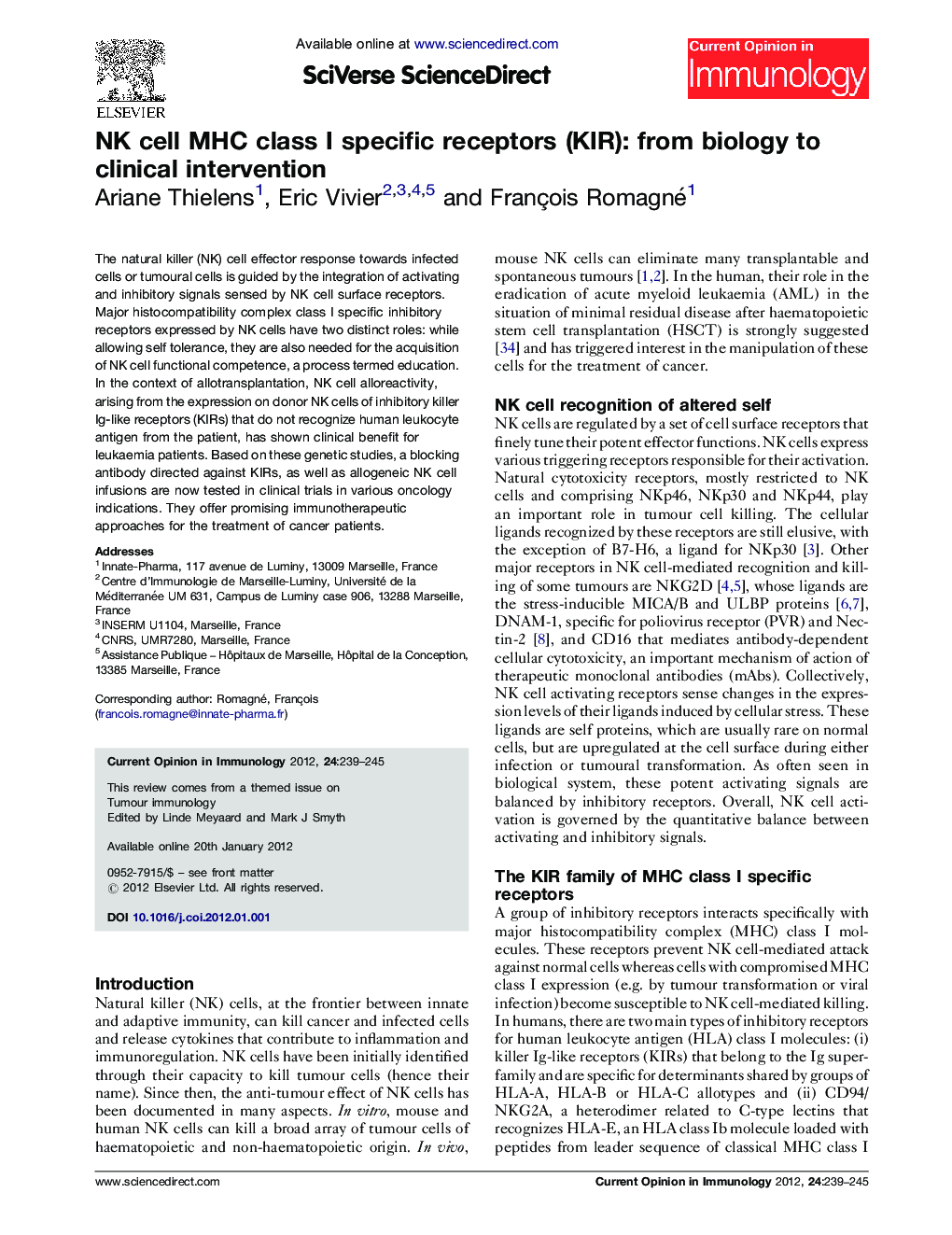| کد مقاله | کد نشریه | سال انتشار | مقاله انگلیسی | نسخه تمام متن |
|---|---|---|---|---|
| 3346174 | 1215773 | 2012 | 7 صفحه PDF | دانلود رایگان |

The natural killer (NK) cell effector response towards infected cells or tumoural cells is guided by the integration of activating and inhibitory signals sensed by NK cell surface receptors. Major histocompatibility complex class I specific inhibitory receptors expressed by NK cells have two distinct roles: while allowing self tolerance, they are also needed for the acquisition of NK cell functional competence, a process termed education. In the context of allotransplantation, NK cell alloreactivity, arising from the expression on donor NK cells of inhibitory killer Ig-like receptors (KIRs) that do not recognize human leukocyte antigen from the patient, has shown clinical benefit for leukaemia patients. Based on these genetic studies, a blocking antibody directed against KIRs, as well as allogeneic NK cell infusions are now tested in clinical trials in various oncology indications. They offer promising immunotherapeutic approaches for the treatment of cancer patients.
► NK cell activity is governed by balance of activating and inhibitory receptors.
► Different KIR molecules recognize groups of class I alleles.
► Their variegated expression leads to a repertoire of NK cells with different cytotoxicities.
► Allotransplantation demonstrated that KIR can be key for haematologic tumour control.
► Therapeutic approaches based on KIR blockade are currently tested in clinics.
Journal: Current Opinion in Immunology - Volume 24, Issue 2, April 2012, Pages 239–245